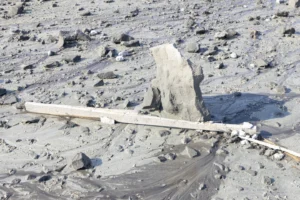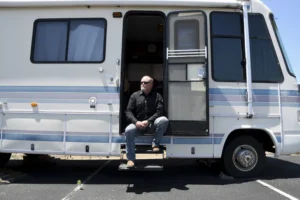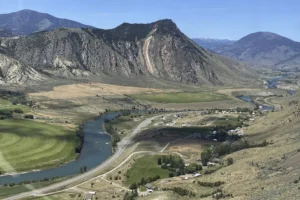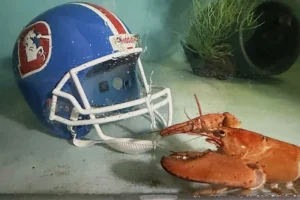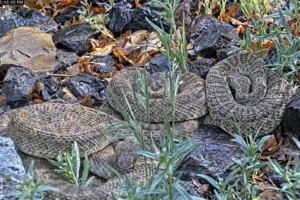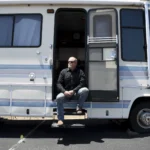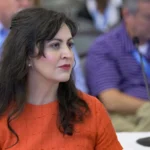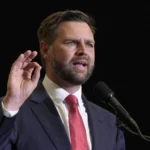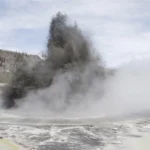FRIDAY FOCUS: 2024 Wyoming Teacher of the Year on Managing Politics in the Classroom
Cody High School’s John Corbin thinks quality civics education is key to improving the national discourse
- Published In: Other News & Features
- Last Updated: Oct 06, 2023
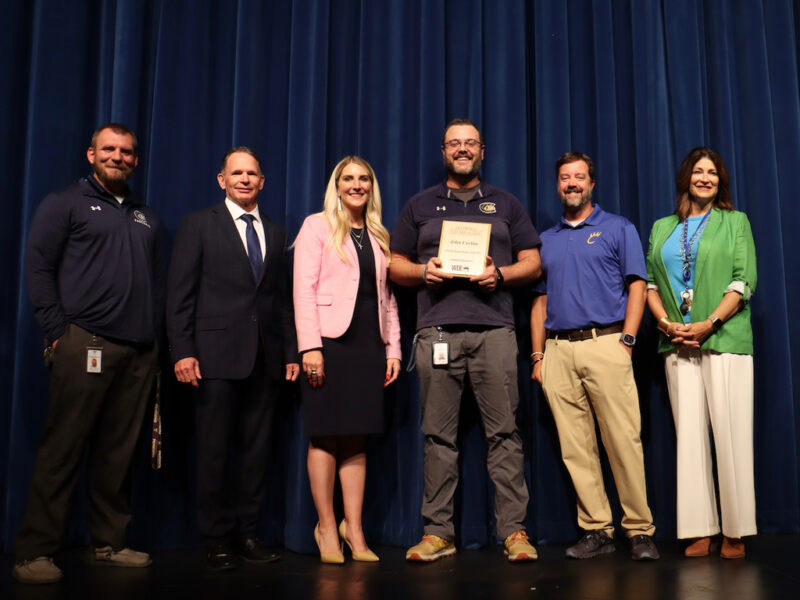
Corbin received the award from Superintendent for Public Instruction Megan Degenfelder at a surprise school assembly. (Photo via Park County School District 6)
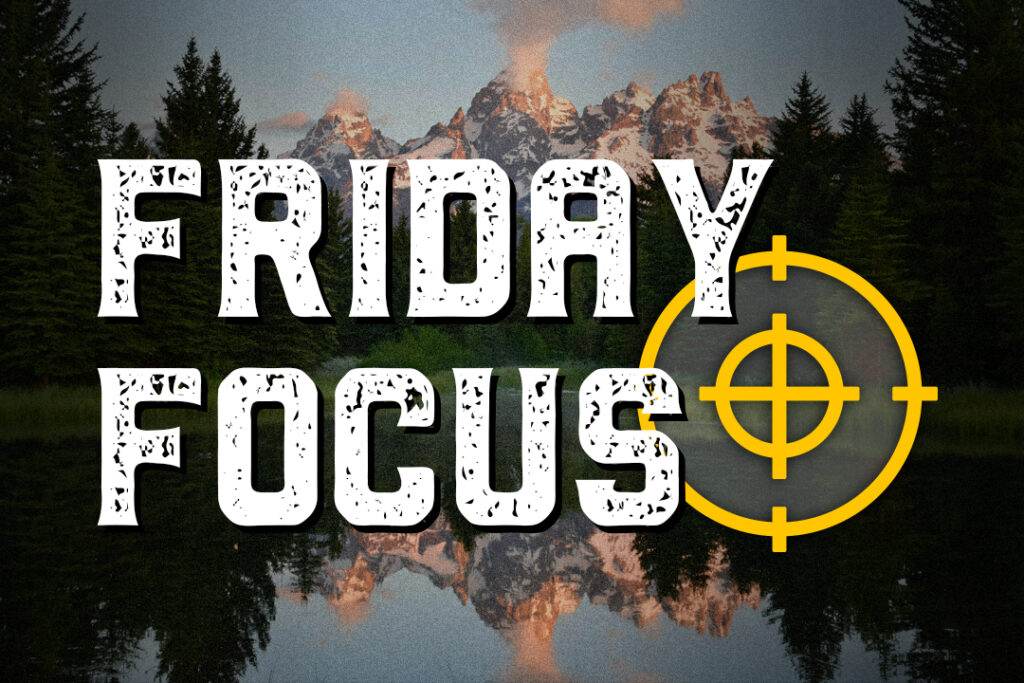
By Jacob Gardenswartz
Special to the Wyoming Truth
By his own admission, Cody High School social studies teacher John Corbin was “late to the game” recognizing the importance of civics education.
Yet the Colorado native’s recent recognition as the 2024 Wyoming Teacher of the Year came in no small part due to the significant emphasis he puts on instruction of government and politics.
“John’s work instills in students a patriotic appreciation for our system of government and a sense of obligation to participate, to sacrifice for the future of their community and democracy, something we need now more than ever,” Superintendent of Public Instruction Megan Degenfelder said in a statement announcing Corbin’s honor.
The Wyoming Truth recently spoke with Corbin, 40, about his teaching philosophy, managing difficult topics in the classroom, hot-button educational issues and more. What follows are excerpts from that conversation.
Why is civics education important in high school?
Corbin: Being a social studies teacher, you get to learn all kinds of things but you don’t always get to specialize in certain things. And so through college, my specialty was U.S. and world history. That was the main thrust of most of what I taught until I came to Cody High School. And that’s really where all of that changed.
When they brought me in, they wanted to change up how we approached our government and civics curriculum. And there’s a tremendous program that we have in the state of Wyoming called “We the People: the Citizen and Constitution,” and they were willing to provide incredible professional development in the area of government. I was able to take advantage of that and learn so many of the things that maybe I’d taken for granted, even as a social studies teacher… really getting into the nitty gritty: How does our government affect us on a daily basis? Why is that important? Why is our voice important? How is it structured?
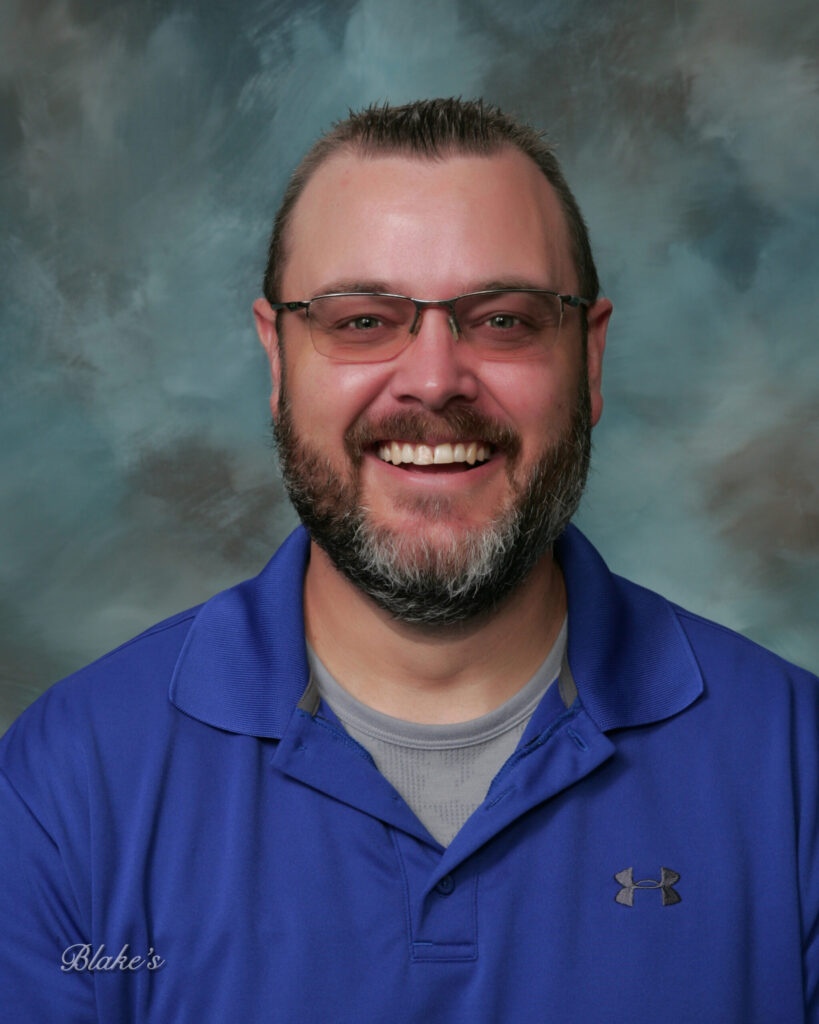
Civic education and knowing how the government, whether it’s at the local, state or national level, impacts your life is so important. Being a part of that process and having a voice in that process is so important.
Conversations about politics can be so charged, especially in this moment of intense political polarization. How do you manage that with students?
Corbin: There’s a constant expectation of civil discourse in our classrooms. And that’s not just me; that’s the entire social studies department — we feel that it’s really important, and we model it for our students, and we hold them accountable to it.
We are a very red county: somewhere in the 70 [%] is our voter turnout for the Republican Party. And so we do have a pretty conservative bent in our classrooms. But sometimes the best discussions occur when we have somebody that has a little bit more of a liberal stance really push in and present their ideas in an important way that allows other students to chew on it and think about the validity of the different claims and the evidence that they’re bringing.
We put a premium on discussion. That’s really what we built at the Constitutional Convention. We built a nation that values discussion over speed. We built a nation that values things like civic-mindedness and civil discourse, to work it out and get it right. And so we can do that. We can talk about important and difficult things, but we should do so kindly.
We’ve recently seen educational issues take center stage locally and nationally, from debates about book bans to LGBTQ student identities to history curricula. How do you think about those issues, especially as someone newly tasked with representing teachers in state policy forums?
Corbin: I would say that the thing that we probably put the greatest emphasis on in my classroom and in the Cody High social studies department in general is critical thinking. We may see things that we don’t always enjoy in the political discourse. But it’s not necessarily our job to indoctrinate anybody about it. It’s to really help ourselves, our students, our communities, understand the arguments that are being made and what they feel about them, so that they can properly respond.
You can’t do that in a vacuum, so you have to be able to interact with multiple sources. Does that mean that you put things in front of students that are not appropriate? No. As a father, you know, if I know in my heart that I would be unhappy with my student, my son, being exposed to that thing, I’m not putting it in my classroom to expose to other people’s kids.
We can’t deny the idea that it’s important to interact with diverse viewpoints. That doesn’t mean that we have to hold diverse viewpoints. But when we interact with diverse viewpoints, we understand our arguments better, we understand their arguments better. And we also understand how to argue and convince others of the validity of our own stances, and I don’t think we do that well enough. I don’t mind the political conversations that are happening. In fact, I embrace them. But we also need to be willing to have the stance that we need to get this right, not just be louder than the other guy.
In the past year, artificial intelligence tools like ChatGPT have proliferated, especially in classrooms. How has that impacted your teaching?
Corbin: Assessment has definitely changed. My assessments used to have an option to do something online in a Google Doc; I’ve changed things to handwritten so that I don’t have to worry about that particular issue. The hardest part is doubling down on my old middle-school-teacher ability to read handwriting.
So there are consistently things that make life more efficient and allow us to be more time conscious. But it has to be done responsibly — how do we use this responsibly to create critical thinkers? Because one of the things that I don’t think AI can do yet is think critically. It can spit out a bunch of stuff. But if you don’t really understand what it has said, if you don’t have the ability to put in the parameters correctly, it’s still going to be a substandard product. We in the education profession really need to think about what is the role as this continues to move forward and evolve. It’s not going away, so we need to respond to it appropriately. And I think right now, we’re feeling out what that is.
What’s something you wish officials who make education policy would do differently?
Corbin: Ever since I’ve been an educator, we’ve constantly said, “We’re preparing kids for jobs that haven’t even been created yet.” We don’t know what they are. So we have to be able to help them understand how to learn and how to be effective in a modern space like this.’
And so I would like them to look at how we change. How do we change responsibly and responsively to our future stakeholders? These [students] are the people that are gonna be voting for you, and it’s important that they’re able to respond to their new world in authentic ways. And maybe we in education also need to respond to their needs in authentic ways as well.
Is there a teacher who had a particularly strong impact on you when you were a student?
Corbin: There’s two, both from Colorado: one of them was a teacher of the year, and one of them probably should have been.
My third and fourth grade teacher: Margaret Zimbrick. She challenged us on the first day of third grade to learn the opening to [the musical] “Cats” and several of the songs and poems… We did so many innovative and fun things in my two years in that classroom that were centered around learning. That’s actually a guiding light of mine when I’m creating lessons and building relationships with students.
The other person is a gentleman by the name of Tom Kajiwara. He was a PE teacher and a football coach. And he developed better and longer lasting relationships with students and athletes than anybody I’ve ever seen… He had a profound impact on me as a student and even as a young educator.

